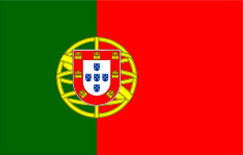2006 Maritime Labour Convention, (MLC 2006)
The 2006 MLC is intended to be a universally applicable instrument, constituting the fourth pillar of the international regulation of the merchant shipping sector, complementing the SOLAS, STCW, and MARPOL Conventions.
2006 Maritime Labour Convention, (MLC 2006)
Breadcrumbs
![]() The General Conference of the International Labour Organization, at its ninety-fourth Maritime Section held on 7 February of 2006, adopted the 2006 Maritime Labour Convention, (2006 MLC), with the objective of creating a single and coherent instrument that incorporates, as far as possible, all updated standards of the existing international Conventions and Recommendations on Maritime Labour, as well as fundamental principles of other international conventions on labour.
The General Conference of the International Labour Organization, at its ninety-fourth Maritime Section held on 7 February of 2006, adopted the 2006 Maritime Labour Convention, (2006 MLC), with the objective of creating a single and coherent instrument that incorporates, as far as possible, all updated standards of the existing international Conventions and Recommendations on Maritime Labour, as well as fundamental principles of other international conventions on labour.
The Convention entered into force on 20 August 2013, 12 months after registration of its ratification by the first 30 Member States of the International Labour Organization (ILO), which represent at least 33% of the gross tonnage of the world´s entire merchant fleet.
States which subsequently ratify the Convention shall be bound by its provisions 12 months after the date of registration of its ratification. Through Resolution of the Assembly of the Republic No 4/2015 of 12 January, 2015, and the Decree of the President of the Republic No. 7/2015 of 12 January, 2015, Portugal has approved, respectively, and ratified the 2006 MLC, but has not yet deposited with the ILO its instrument of ratification. The status of ratification of the 2006 MLC by the ILO Member States can be monitored by:
http://www.ilo.org/dyn/normlex/en/f?p=NORMLEXPUB:11300:0::NO::P11300_INSTRUMENT_ID:312331.
The 2006 MLC is intended to be a universally applicable instrument, constituting the fourth pillar of the international regulation of the merchant shipping sector, complementing the SOLAS, STCW, and MARPOL Conventions - the International Convention for the Safety of Life at Sea, 1974 (SOLAS), the International Convention on Standards of Training, Certification and Watch Keeping for Seafarers, 1978 (STCW), and the International Convention for the Prevention of Pollution from Ships, 1973 (MARPOL).
The 2006 MLC is organized in three main parts: the articles, which come first, lay down the general principles and obligations. The following more detailed rules and provisions of the code (two parts, Part A and Part B). The rules and standards (Part A) and the guiding principles (Part B) of the Code are set out in five Titles, which cover essentially the same subject as the 37 Maritime Labour Conventions and their Recommendations.
The 2006 MLC also regulates the obligations of States, as flag State or port State, with a view to complying with and monitoring the implementation of 2006 MLC by ships flying flags of States that have ratified it.
Vessels´ Flag State responsibilities involve the establishment of an inspection and certification system to ensure that the working and living conditions of seafarers that are allocated to such ships are in accordance with 2006 MLC standards.
The certification system shall include the maritime labour certificate, complemented by the declaration of compliance with the maritime labour or, in some cases, a provisional maritime work certificate attesting that the ship has been inspected by the flag State and that the mandatory provisions of the 2006 MLC concerning the working and living conditions of seafarers are met.
The 2006 MLC provides that the inspection and certification system under the responsibility of the flag State may be ensured by public institutions or recognized organizations for this purpose.
Its provisions concerning port State´s responsibilities stipulate that any vessel flying the flag of another State which, in the normal course of its activity, calls at a port or national anchorage may be inspected in order to check the conformity of working conditions and living conditions of its seafarers with the provisions of that Convention.
Port State inspection shall check the conformity of the mandatory provisions of 2006 MLC, in the case of the flag State of the vessel has ratified the 2006 MLC, or, if not, ensure that the treatment given to such ships and its crew is no more favourable than that of ship flying the flag of a State party to the 2006 MLC, and the vessel is subject to a more detailed inspection.
Port State Control is governed by the European Union Directive 2009/16/EC of the European Parliament and of the Council of 23 April 2009 concerning port State control, which has been transposed into the internal legal system by Decree-Law No. 61/2012 of 14 March. That Directive was amended by Directive 2013/38/EU of the European Parliament and of the Council of 12 August 2013, transposed into the national legal system by Decree-Law No. 27/2015, of 6 February. It is foreseeable that inspections carried out in the framework of port State control should take into account the provisions of 2006 MLC.
The 2006 MLC applies to all vessels belonging to public or private entities usually related to the commercial activities, with the exception of the warships and auxiliary warships, the vessels related to the fishing or similar activities and traditional construction of vessels.
All ships of 500 gross tonnage or more flying the Portuguese flag and engage in international voyages or voyages between the mainland and the Autonomous Regions of the Azores an and Madeira or between these Regions, shall, until 2006 MLC enter into force for Portugal, have a maritime labour compliance document and a provisional maritime labour compliance certificate, or a provisional maritime labour compliance document.
There are some new issues, especially in the area of ??occupational safety and health that meet the current concerns, such as the effects of noise and vibrations on workers or other workplace hazards, but, in general, the 2006 MLC aims to maintain the standards of the current instruments at its current level, while leaving each State greater discretion on formulating its national legislation, establishing this level of protection. The provisions, relating to flag State control, including the use of recognized organizations, arise from the Convention No 178 on Maritime Labour Inspection of ILO.
The inspections in foreign ports (port State control) in Title 5 is based on existing maritime Conventions, in particular Convention No. 147 - Convention on Minimum Standards for Merchant Shipping, 1976, and Conventions adopted by the International Maritime Organization (IMO) and regional agreements for port State control (PSC MOU). However, the 2006 MLC arises from these in order to develop a more effective approach to these important issues, consistent with other international maritime conventions that establish quality norms for the maritime transport relating to issues such as security and protection of ships and protection of the marine environment. One of the most innovative aspects of the 2006 MLC, as regards ILO Conventions, is the certification of seafarers' working and living conditions on board ships.
The 2006 MLC regulates the requirements of minimum age, medical certificate, training and qualifications for working on board of merchant ships, the working conditions such as the conclusion of employment contract, remuneration, recruitment and placement services of seafarers, working time or rest time, annual leave, repatriation, safe manning, accommodation, leisure facilities, meals and table service, health protection and medical care at sea or on land, accident prevention, well-being and social security protection, on board complaint procedures and payment of remuneration.
In the framework of the European Union, the Council of the European Union adopted Decision 2007/431/EC on 7 June 2007, authorizing the Member States to ratify the 2006 MLC.
Subsequently, the social partners, at Community level concluded in 2008 an agreement incorporating the content of rules and standards on most matters into the 2006 MLC, and this agreement was adopted by Directive 2009/13/EC of 16 February 2009, whose transposition deadline ends one year after the entry into force of the 2006 MLC.
At the national level, in order to comply with the mandatory provisions of the 2006 MLC 2006, regulating the activity of seafarers on board vessels flying Portuguese flag, as well as the responsibilities of the Portuguese State as flag State or port, was published Law No 146/2015 of 9 September, which undertakes to the second amendment to Decree-Laws No 274/95 of 23 October and No 260/2009 of 25 September, and to the fourth amendment to Law No. 102/2009, of 10 September, repeals Decree-Laws No. 145/2003, of 2 July, and Decree-Law No. 74/73 of 1 March, as amended by Decree-Laws no. 104/89 of 6 April and 88/96 of 3 July and Law No 114/99 of 3 August. Thus, it is defined the regulation of the legal regime for the promotion and prevention of occupational safety and health, in accordance with the provisions of Article 284 of the Labour Code, with regard to the prevention and protection of minors in the case of works that, by its nature or conditions under which they are performed, are detrimental to their physical, psychological and moral development, in accordance with the provisions of article 72 (2) of the Labour Code.
![]() Deposit of the 2006 MLC by Portugal
Deposit of the 2006 MLC by Portugal
The International Labour Organization confirms the deposit of the 2006 MLC by Portugal.
http://www.ilo.org/dyn/normlex/en/f?p=NORMLEXPUB:11300:0::NO::P11300_INSTRUMENT_ID:312331
![]() Concentrated Inspection Campaign (CIC) on the 2006 Maritime Labour Convention, (MLC, 2006)
Concentrated Inspection Campaign (CIC) on the 2006 Maritime Labour Convention, (MLC, 2006)
Under the Paris Memorandum (MoU), Port State Control will launch a Concentrated Inspection Campaign (CIC) on the 2006 Maritime Labour Convention, (MLC, 2006).
The purpose of the CIC is to verify whether the minimum working standards and living conditions have been implemented on board and it will be carried out for a period of three months starting on 1 September 2016 and ending on 30 November 2016. Thus, the Press Release CIC MLC, 2006 and the CIC MLC, 2006 Questionnaire - 2016 is publicised a Press Release CIC MLC, 2006 - 2016 e o CIC MLC, 2006 Questionnaire - 2016.



